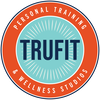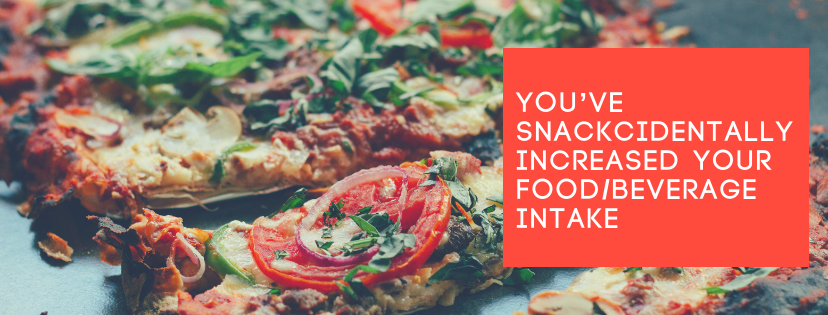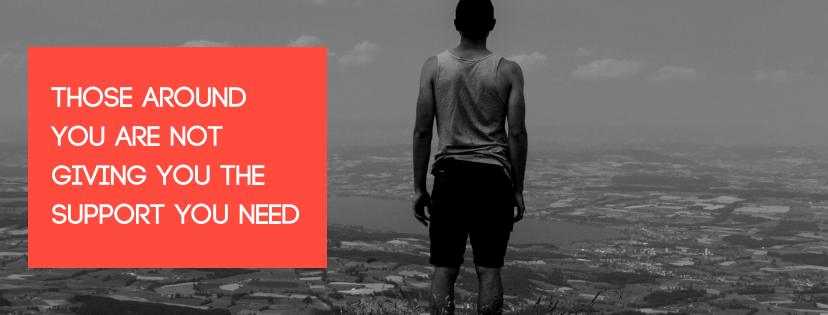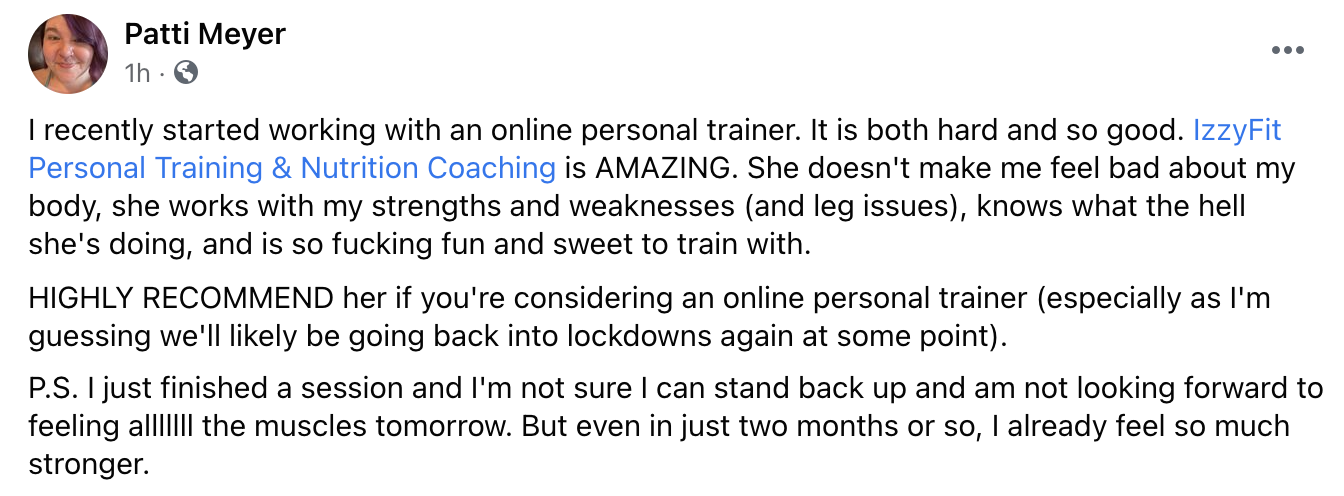Hit a Fitness Wall and Don't Know Why? We Have 4 Ideas (and Ways To Punch Your Way Through)1/15/2019 So you’ve joined a gym, become a member at a studio, hired a personal trainer (woohoo), or started training for your first 5k! You’ve got goals and you’ll exercise your way to reaching them! Except that, after initially seeing some results, you’ve now hit a plateau of some sort. Maybe you lost some weight, stopped feeling as winded going up stairs, or cranked out your first proper pushup! But suddenly your progress (and the celebration) stalled. What gives? Some TruFit Evanston personal trainers weigh in... 1.You’re working out harder than you have in a long time, and you are feeling great... and more peckish than usual. That’s normal. The more calories you expend the more your system is going to alert you that you feel hungry. The body does NOT like change and it will have no qualms telling you you’re messing up its equilibrium. If your goal is weight loss, this more frequent desire for food can be tricky. Hunger means it’s time to eat, right? Well, yes, but trying to lose weight also means having to take in less calories, since exercise alone won't necessarily do it. This means hunger will need to be a more frequent sensation as your body adapts to less food and more movement. “We can fall into the trap of thinking, ‘Well, I worked out today so these Oreos aren’t going to do much,’” says coach Izzy. “Remember: Weight loss will only happen with a calorie deficit, so your body won’t care if you’re eating only Oreos or an equal caloric amount of apples. The ‘I can burn this off with exercise’ game will end with you losing the game, not losing the weight.” The fix: Be aware and honest about what you’re taking in. Exercise to build lean muscles and to move and feel better; eat properly to lose the body fat and excess weight. 2.When one person makes the awesome decision to live a healthier lifestyle, it can be challenging for those around that person to offer support. “I have one client whose family makes fun of how clean she now eats and actively tries to sabotage her diet,” says coach Sarah Laspas. Whether your friends and family are shaming your new habits and behavior, or simply do not want to participate or offer encouragement, the lack of support is just another barrier you have to overcome. The fix: Having honest and open conversations with those around you about your new lifestyle is crucial. By communicating what your goals are, why you're making these choices, and how important this is to you, it might help bridge the understanding gap. Also, letting them know how they can help, even in small ways (e.g. "Please do not offer me any Oreos for dessert"), might be eye-opening for them. You’re not asking them to adopt your new habits; you’re asking them to respect your needs and wishes. And if they can’t do it, it might be time to evaluate some things (like whether joining this person for dinner next week will feel helpful or harmful). Alternatively: “Be up front by telling them whatever food they (the unsupportive person or persons) are pushing on you just doesn’t make you feel good,” offers Sarah. “Whenever anyone gives me a hard time for ordering a salad or whatever when we’re out to eat--and won’t give it a rest--I just say that my body craves XYZ now, and when I don’t eat enough of it, I get constipated. It's likely the truth anyway, and it usually ends the annoying encounter immediately, because people hate talking about poop. 😝” In the meantime, you can find support in a number of ways! Gyms and studios, like TruFit, have been focusing more and more on community-building because one of the cornerstones for success is surrounding yourself with people who have shared values. There are also countless groups on Facebook, Weight Watchers, and the like who offer support among members. You could also check out cooking classes, meetups, or special events where you might connect with people who share your goals and interests. 3.A lot of people talk about nutrition needs when trying to lose weight, but it’s not so common to talk about how difficult it can be to build bulk in the form of muscle. Protein helps build bigger muscles and, in order to do that, the commonly-accepted calculation for how much protein you need is 1g of protein per pound of your body weight. Says trainer Marco Gonzalez, “Usually clients expect to bulk only with muscle, and get frustrated if they are gaining some fat too. But that is normal.” The fix: Marco explains, “Finding the right macro ratios is the key to minimizing the amount of fat they can also gain.” This means finding out how many calories you should eat per day, and how much within that number should be allotted to protein, to fat, and to carbohydrates. Apps like MyFitnessPal, MyPlate, and Fitocracy Macros can help. If you’re more of a beginner, or tracking calories and macros isn’t your thing, keep this in mind: The cleaner you eat, the leaner you’ll be. Yep, it’s kind of that simple. That being said, you can use a cheat sheet like this to see roughly how much you should be eating, and of what. (Seriously; this infographic is the absolute best at straightforwardly showing you what to do and correctly managing expectations.) 4.“The mentality of being on a vacation or work trip is that all ‘rules’ are out,” says trainer Mary Cox. So that means exercise goes out the door while lots of calorie-dense meals and drinks go in. If going out of town is a rarity, or if the trip is a once-in-a-lifetime event, thoroughly enjoying the culture of food and beverages at your destination is part of enjoying the trip, and as long as you come home and return to your regular habits, no major "damage" will have been done.
BUT, if travel is something that happens more than a handful of times per year, all of the above can easily accumulate into a few extra pounds of body fat per year. This can be why some of us are flabbergasted when we “suddenly” weigh 10 more pounds than we did five years ago: It creeps up over time, from treating out-of-town occasions like they’re the last time we’ll ever be able to eat and drink again. The fix: “What if the ‘rules’ aren’t rules, but a way of life because you get to feel good doing it?” asks Mary. “What if you could enjoy the meals out AND ate less than the whole plate? What if you woke up a little earlier to get your exercise in because it’s just part of who you are or strive to be?” Living a healthy lifestyle and reaching for those fitness goals we set for ourselves can be hard work. At the end of the day, though, that lifestyle should be led in a way that YOU identify with and enjoy. Setting that lifestyle up can take some honest conversations with yourself, with your family and loved ones, and, if you have one, with your personal trainer and fitness coach. If you need a little bit of help along the way, please feel free to reach out to us and we can help you find the right trainer and coach to get you past that plateau! Have you overcome some plateaus yourself? Tell us how in the comments below!
1 Comment
Leave a Reply. |
Archives
April 2024
Categories! |





 RSS Feed
RSS Feed